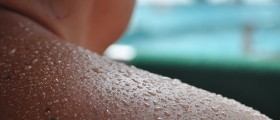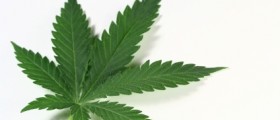Introduction to Hyperhidrosis
Too much perspiration is a common disorder. No matter how unpleasant it may be for the surrounding people, it causes even more trouble to those who are affected by it. It affects their social life, their self-respect and even their career. Not many of them are aware that the excessive perspiration is a physical disorder known as hyperhidrosis and that there are some certain means to put an end to this and stop the sweating.

Causes of Hyperhidrosis
The actual cause of the disorder is mostly individual, as well as the borders where we claim how much perspiration is actually excessive and should be treated. In some cases it is connected with stressful situations, in other patients it occurs only during the night and affects the quality of their night rest.
Many others experience the excessive sweating only when they are out in the sun or in contact with heat. When perspiration traverses the normal limits so that it affects suffering in the individuals, it may be identified as a physical disorder. Hyperhidrosis is not dangerous at all but it causes embarrassment to the suffering individuals, from avoiding physical contact to restraining from romantic relationships.
Treatment Options for Hyperhidrosis
Here are some suggestions for a complete drugs-free method that can help control the excessive sweating - homeopathic treatments.
Homeopathy is a form of alternative medicine dating from the 18th century. It uses highly diluted preparations on patients to cause effects alike the symptoms presented. Homeopathic professionals will consider both the physical and psychological state of the individual before deciding upon a remedy. Those remedies are, with the extremely rare exceptions, completely natural and safe.
Though homeopathy’s efficiency is controversial, some patients claim it is helpful and brings complete healing, while the others, including many conventional professionals, say that it reduces the efficiency on the placebo effects.
Homeopathic treatments for the excessive sweating are:
Silicea - commonly used for sweaty feet.
Acidum hydrofluoricum - for those whose sweat has a sour smell and who suffer from excessive perspiration of their heads.
Calcarea - used as a treatment in overweight patients with sweating problems.
Botulinum - treatment for underarm sweating that involves the use of tiny injections under the skin in this area.
Please remember, this is not medical advice. People should consult their doctors before taking any of the listed treatments. It is important to go to a qualified homeopathic professional. Do not be confused if different treatments are prescribed by different doctors - the principle of homeopathy is that everyone is different, which the methods also reflect.
- Aluminum salts are the most common ingredient in over-the-counter antiperspirants used to treat focal hyperhidrosis. It has been postulated that the mechanism of their action is related to mechanical obstruction of the eccrine gland duct or to atrophy of the secretory cells. The concentrations of aluminum salts in most commercial antiperspirants is 1%–2%; however, aluminum chloride solutions are available in 20%–25% concentrations. Repeated applications are often necessary every 24–48 hours.
- Iontophoresis is defined as the introduction of ions into the skin by means of an electrical current. The mode of action is not yet clear, but it is postulated that a charged particle obstructs the duct or the electrical change disrupts eccrine gland secretion. The procedure entails placing the hands or feet in a shallow basin filled with water, through which an electric current is passed. Iontophoresis is primarily used for focal palmoplantar hyperhidrosis, since the hands and feet are the easiest body parts to submerge in water.
- Botulinum toxin A is the best-studied treatment to date for focal hyperhidrosis. It is a neurotoxin produced by the anaerobic bacterium Clostridium botulinum; serotypes of toxin exist, of which type A is the most potent. When used to treat focal hyperhidrosis, botulinum toxin is injected intradermally and acts to inhibit the release of acetylcholine at the neuromuscular junction and from sympathetic nerves that innervate eccrine sweat glands, which results in loss of sweating.
- The main systemic agents used to treat focal hyperhidrosis are anticholinergic agents. By inhibiting synaptic acetylcholine, they interfere with neuroglandular signalling. The main limitation of these drugs is that the doses required to achieve reduced sweating may also result in adverse effects such as dry mouth, blurred vision, urinary retention, constipation and tachycardia.
- Biofeedback training, hypnosis and different types of relaxation techniques have been used to treat hyperhidrosis, but research data on their efficacy are still scarce to nonexistent. The lack of well-designed trials and long-term follow-up limits their use.

















Your thoughts on this
Loading...